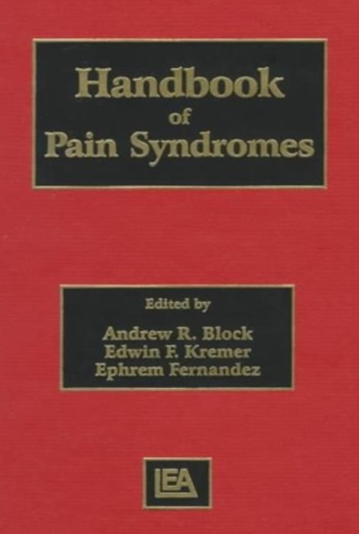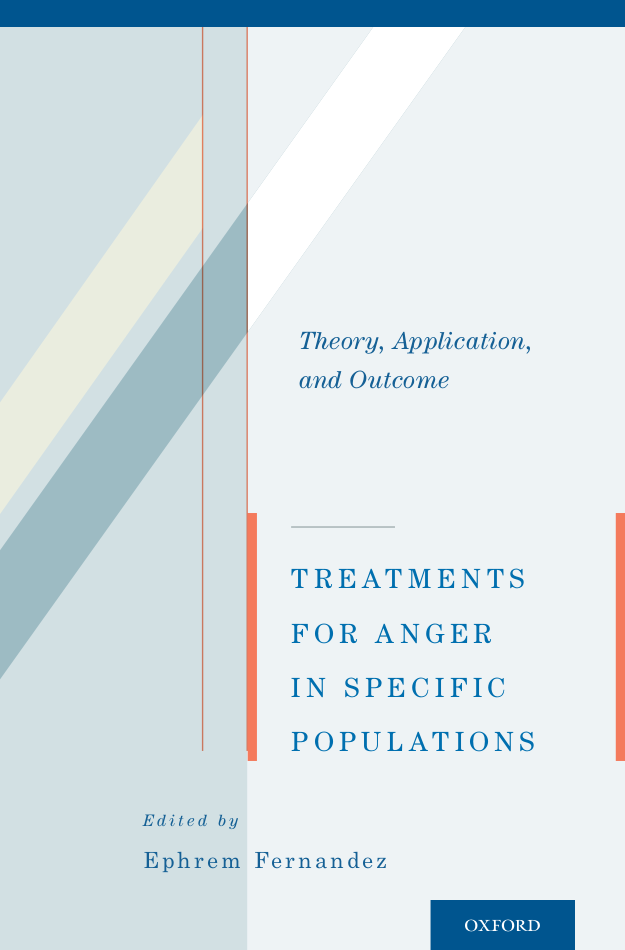
Treatments in Anger in Specific Populations
Ephrem Fernandez has succeeded in integrating academic research and practice in this impressive and unique collection of chapters on anger treatment in a range of contexts, both clinical and non-clinical. He also succeeds in drawing together conclusions from the different chapters into a coherent set of principles to guide interventions. I fully recommend this book to all those interested in anger and its treatment.
– John Archer, Professor of Psychology, University of Central Lancashire, Preston, UK, Editor-in-chief, Aggressive Behavior
Anger lies at the heart of an impressive number of significant social and psychological problems. It is startling, then, to realize how little research and training is devoted to its understanding and treatment. In Treatments for Anger in Specific Populations: Theory, Application, and Outcome, edited by Ephrem Fernandez, a thoughtful group of anger experts discuss anger management techniques that have been used across a wide range of people and settings. For those who work with difficult clients dealing with major anger or hostility issues, check out this practical and research-informed book.
– James W. Pennebaker, Regents Centennial Professor and Chair, Department of Psychology, University of Texas at Austin
At a time when the preoccupation with an overmedicalization of mental and emotional difficulties generates lively debate, this book is a very welcome contribution to understand the link between normal and dysfunctional anger – one of the emotions that may have very powerful effects on social behavior and interaction. Appropriately, the central issues of anger management and emotion regulation are given central play and a host of information on treatment options is provided. This book will be an important milestone for the future development of work on anger related emotional problems.
– Klaus Sherer, Professor of Psychology and director of the Swiss Center for Affective Sciences in Geneva
Treatments for Anger in Specific Populations is a book for our time. These days, to me at least, anger seems to be all around us. Whether on television’s “reality shows”; on the evening news on the local, national, and world levels; or on our daily commute to work – whether the rage on the road or the behavior of those of us stuffed in subways in our crowded cities. Here is a volume that clearly and practically presents, from many different angels, the “negatively valanced feeling” (p.1) so familiar to all of us. Fernandez has widely chosen 14-chapter authors who are each expert at delivering, as the title promises, treatment for anger in specific populations. Subjects focus importantly on the influences of culture and gender across the age continuum.
– Merlino, MD. MPA State University of New York, Downstate Medical College
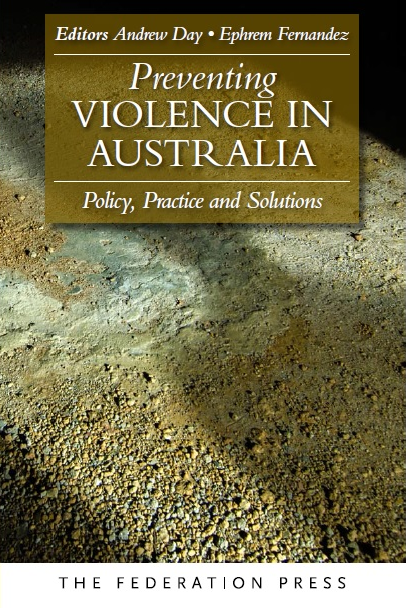
Preventing Violence in Australia
The book neatly describes its own purpose: for all of those who are interested in understanding and preventing violence in Australia. In reality the book is a broad collection of essays from the leading academics in Australia and New Zealand examining the whole spectrum of violence from the home, in the workplace, schools, Aboriginal communities, in the context of alcohol and substance abuse, mental illness, amongst youth, from a victim and perpetrator point of view and just about every other dimension one might consider. Whilst the writers are commentating on Australasia and its many faceted communities much of the work is relevant to the Western World in general.
– Steve Hall, Director of Reducing re-offending Serco Australia and New Zealand
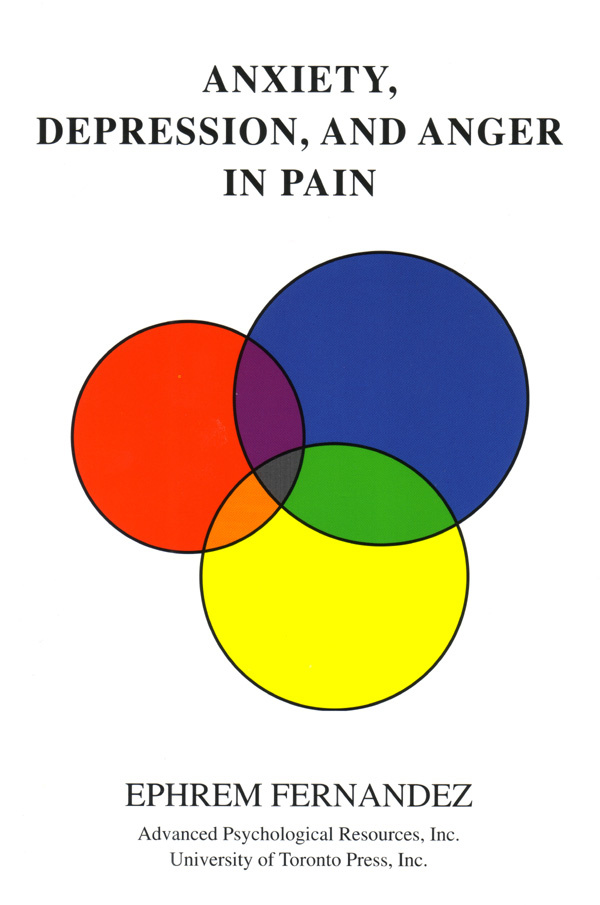
Anxiety, Depression, and Anger in Pain
Anxiety, Depression, and Anger in Pain by Ephrem Fernandez, Ph.D. is clearly the most comprehensive source for information written about this topic, and establishes Dr. Fernandez as the leading scholar in this area of clinical investigation. The book offers a thoughtful integration of the relevant theory and empirical research on the relationships between negative emotions and the experience of pain, as well as a sophisticated consideration of the clinical implications of these relationships for the field of pain management.
– Robert D. Kerns, Ph.D. Chief, Psychology Service, VA Connecticut Healthcare System, and Associate Professor, Psychiatry, Neurology & Psychology, Yale University
Anxiety, Depression, and Anger in Pain is a small treasure. Fernandez reviews all the relevant studies on each emotion as it relates to pain, from epidemiologic to experimental to case study, and evaluates their implications for both causality and treatment. The old question of whether it is the pain that causes the affective response, or vice versa, is well handled, as is the issue of whether and to what extent physiological and psychological diathesis is involved. There is no stumbling over dualism here. The clinician as well as the researcher will find much to use.
– Richard A. Sternbach, Ph.D. Founding and Honorary Member, International Association for the Study of Pain, and Founding Member and Past President, American Pain Society. Formerly Director, Pain Treatment Center, Scripps Clinic & Research Foundation, La Jolla, California.
Fernandez’s book “Anxiety, Depression, and Anger in Pain” will change the present milieu by highlighting the importance of the emotional component of pain. Each of the three key chapters on Anxiety, Depression and Anger comprehensively review the role of the emotions. Topics include phenomenological and psychiatric descriptions, epidemiological data, gender, age and genetic differences, interactions between pain and affect, assessment instruments, biological and psychosocial mechanisms, treatment strategies and future directions.
– W. Crawford Clark, Ph.D., Professor of Medical Psychology, Department of Psychiatry – Unit #50, College of Physicians & Surgeons, Columbia University
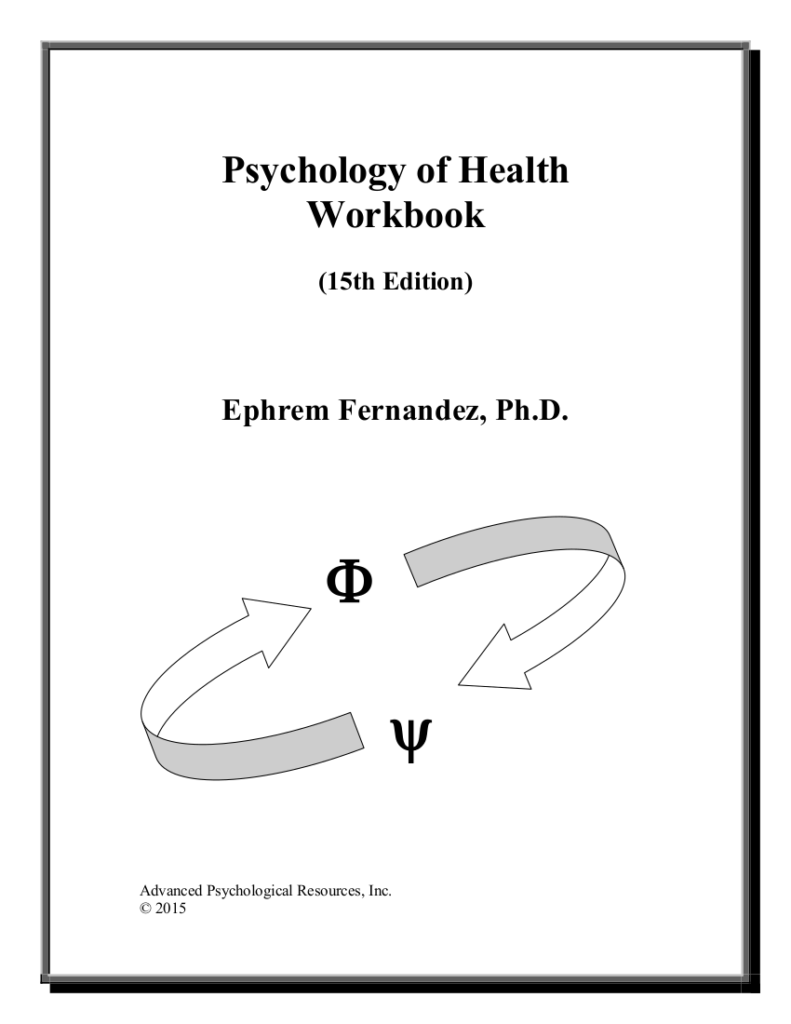
Psychology of Health Workbook, 15th Edition
